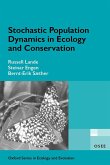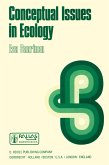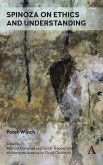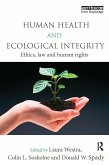This book presents a comprehensive vision of human life, ecology, and theology inspired by Spinoza. According to this vision, human beings and all other natural entities are not independent substances but are rather "modes" of nature, meaning that they are fleeting manifestations of nature's conatus. By intuitively (and not just intellectually) recognizing ourselves to be modes of nature, we can more fully realize ourselves. To achieve this requires a radical rethinking of our world, of ourselves, and of God, and a far richer understanding of ecology, and an ethics grounded in ecology, than those in current usage. Brian Fay explores this rethinking, and the result is a new, far-reaching vision of our world and how to be responsible, thriving agents in it.
Bitte wählen Sie Ihr Anliegen aus.
Rechnungen
Retourenschein anfordern
Bestellstatus
Storno








